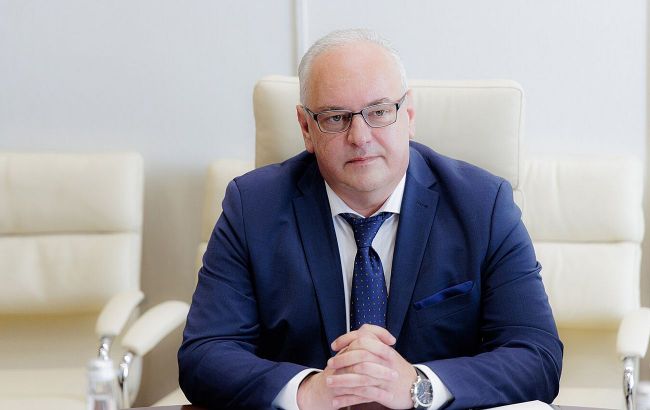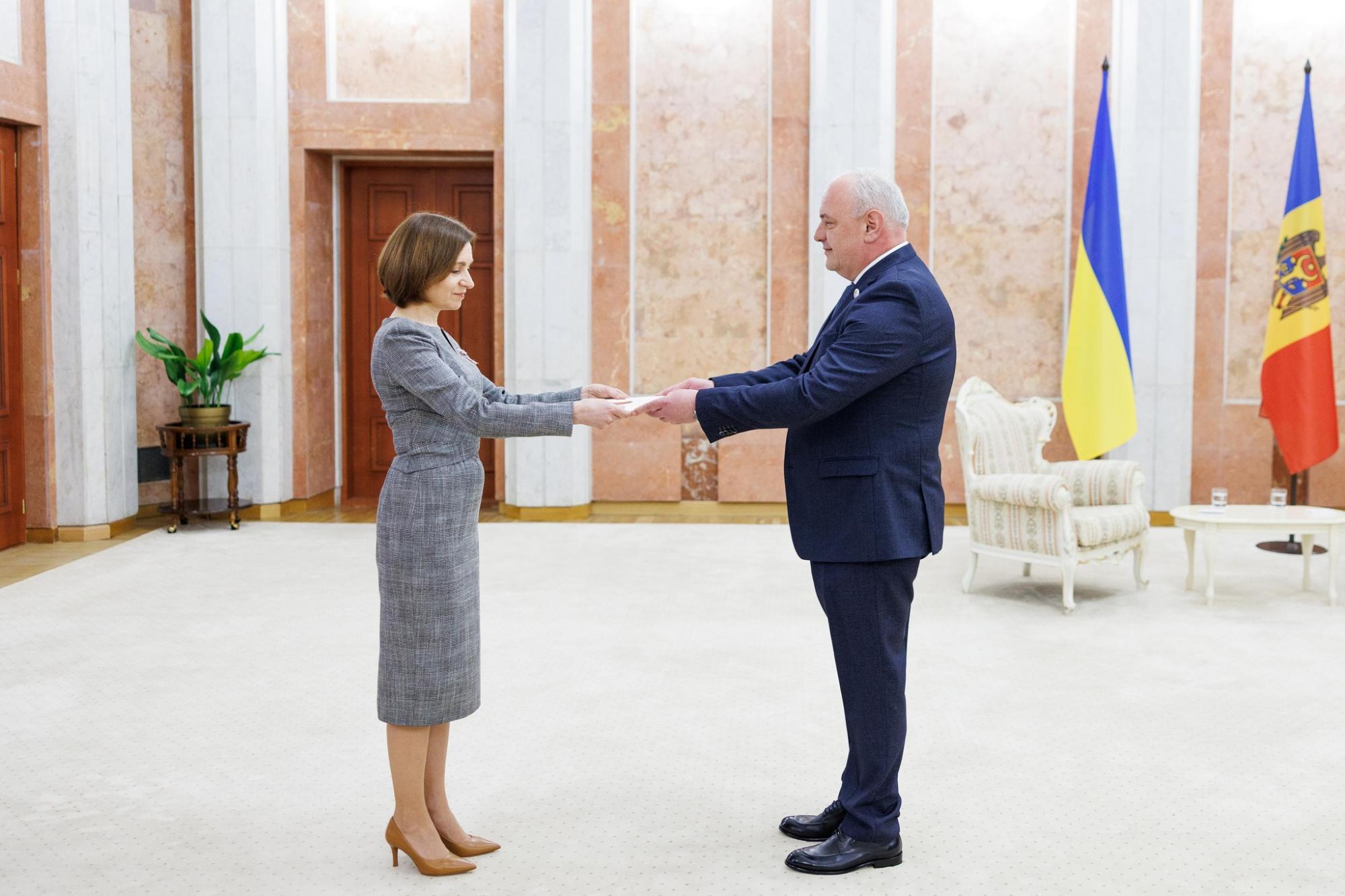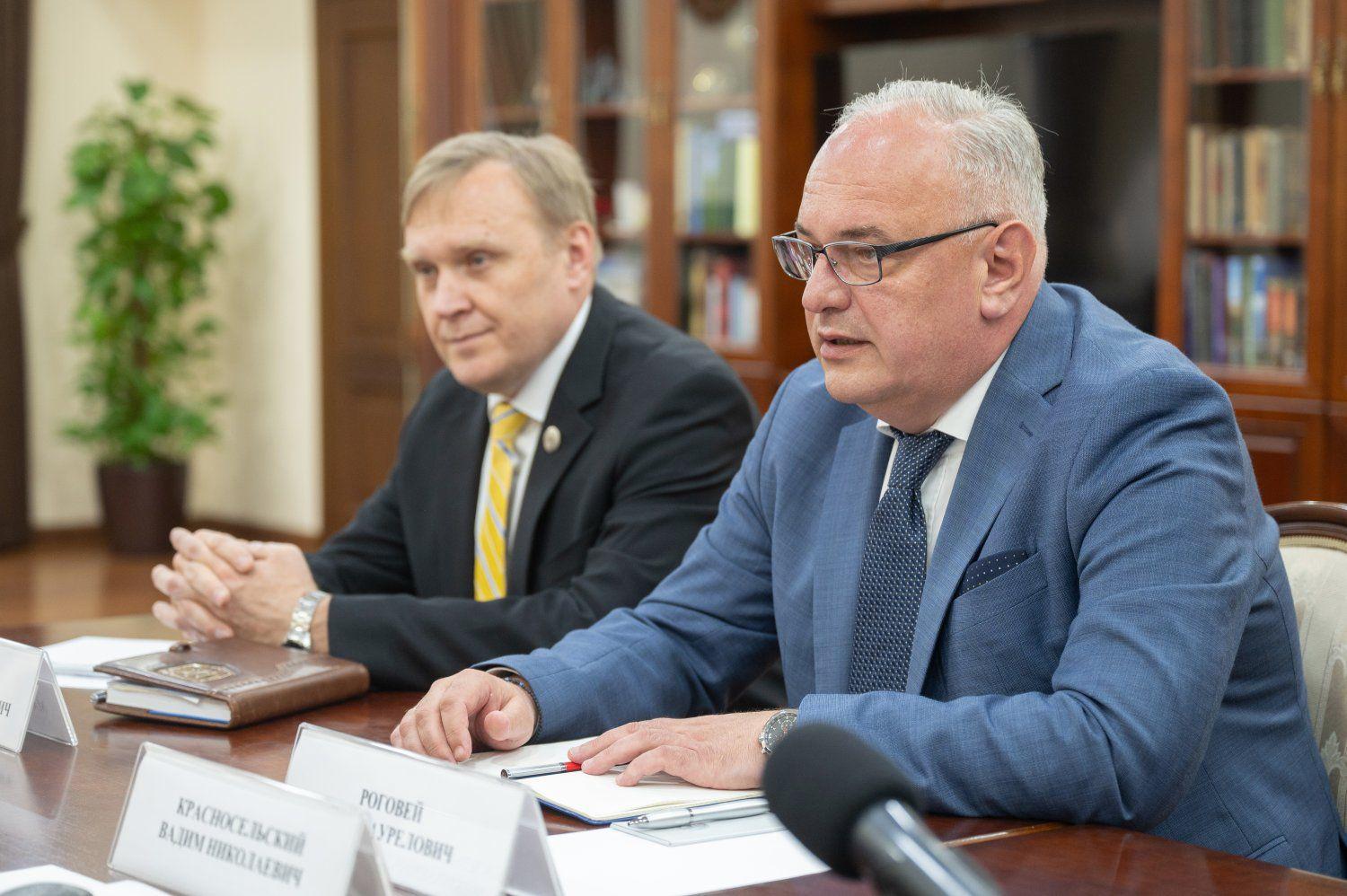Ukraine's Ambassador to Moldova Paun Rohovei: 'Russia is losing control over Transnistria'
 Paun Rohovei, Ambassador Extraordinary and Plenipotentiary of Ukraine to Moldova (Photo: flickr.com/parliamentrm)
Paun Rohovei, Ambassador Extraordinary and Plenipotentiary of Ukraine to Moldova (Photo: flickr.com/parliamentrm)
In an interview with RBC-Ukraine, Ukraine’s Ambassador to Moldova, Paun Rohovei, discussed the victory of pro-European forces in Moldova's latest elections, Russian propaganda and pro-Russian sentiments among local Gagauz, Bulgarians, and Ukrainians, analyzed Russia's fading control over Transnistria, and the prospects of its reintegration into Moldova.
Key questions:
- Has Russia suffered a defeat in Moldova's elections?
- How did Moscow try to scare Moldovan voters with war?
- How did national minorities in Moldova end up in a "time capsule"?
- Does Transnistria pose a threat to Ukraine, and when might Moldova fully reintegrate the region?
"Let's be honest: this victory is temporary — it's a window of opportunity to strengthen resilience and speed up European integration. Russia will look for new tools and new targets," Moldovan President Maia Sandu said a few days after the recent parliamentary elections.
The elections ended in a confident victory for her PAS party, which will now hold a single-party majority in the new parliament. Despite enormous efforts and money poured in, Moldova's pro-Russian forces suffered another defeat. But clearly, Moscow has no intention of leaving Moldova alone.
"You could call it another fiasco for Russia, but I wouldn't go that far — as you understand, elections are over, but a segment of the electorate and political forces still look toward Moscow," Ukraine's Ambassador to Moldova Paun Rohovei told RBC-Ukraine.
Among that pro-Russian electorate are many from Moldova's national minorities — Gagauz, Bulgarians, and, regrettably, ethnic Ukrainians. According to Ambassador Rohovei, they have, to some extent, been "frozen in a time capsule," where Soviet-era narratives still live on — reinforced in recent decades by Russian propaganda and the dominance of the Russian language, including in schools.
Still, the Ambassador notes some positive change: in ethnic Ukrainian villages, the election results were not quite what many had expected.
Progress is also visible in another area crucial not only for Moldova but for Ukraine itself — the reintegration of Transnistria. During Russia's full-scale war, fears repeatedly surfaced that the occupied region could be used to strike Ukraine from behind.
But, Rohovei says, that danger was avoided thanks to active Ukrainian diplomacy. Russia's influence in Transnistria is gradually waning, while the region is being slowly reintegrated with Moldova — for now, only economically and socially. Full reintegration, he believes, is already underway, although it requires a key precondition: the demilitarization of Transnistria, including disarmament and the withdrawal of Russian troops.
Moldova's elections
According to Rohovei, these elections effectively decided Moldova's European future — and Russia did everything possible to derail that outcome.
"It was a full-scale effort: information warfare, manipulation, propaganda, cyberattacks — all at once. And most importantly, what we call electoral corruption — vote buying," he said.
Moldovan authorities, he added, learned their lesson from the previous year's presidential elections and referendum, when Moscow also tried to sabotage the country's pro-European course. This time, law enforcement acted in sync to shut down vote-buying schemes.
Ironically, the brazenness of Russian propaganda and the scale of corruption attempts had a reverse effect on many Moldovans.

Paun Rohovei presents his credentials to Moldova's President Maia Sandu (Photo: Embassy of Ukraine in the Republic of Moldova)
"On the eve of the vote, even people nostalgic for the Soviet past started realizing something wasn't right," Rohovei recalls.
In short, Moldova confirmed its pro-European choice at the polls.
"Given all this, one could call it another failure for Russia — but I wouldn't go that far. You see, the elections are over, yet a certain part of the electorate and some political forces still look toward Moscow," the Ambassador added.
Why national minorities, including Ukrainians, still lean toward Russia
In Moldova's regions where national minorities such as Bulgarians, Gagauz, and Ukrainians live compactly, support for pro-Russian forces remains traditionally high. According to Ambassador Rohovei, this stems primarily from decades of Soviet-era Russification — and the lingering narratives of friendship with Russia.
"For decades, all national minorities had what was called the 'language of interethnic communication.' Since Soviet times, that language has been Russian — and unfortunately, it has persisted due to the policies of pro-Russian forces in power, both communists and socialists," the diplomat said.
He described his surprise after visiting Ukrainian villages in northern Moldova: locals speak pure Ukrainian in everyday life, and you can hear it even during school breaks — yet the language of instruction in schools remains Russian.
"In regions where national minorities, including Ukrainians, have traditionally lived, language has long been used as a tool to spread propaganda and anti-European ideas," Rohovei explained.
He has made it his goal, together with the Moldovan authorities, to address this issue and ensure that schools in such regions transition to teaching in their native languages.
How Russia will try to destabilize Moldova after the elections
"Russia will continue exploiting any internal difficulties to serve its own interests and discredit the choice of the Moldovan people. The current parliamentary majority and the future government will face challenges, but I’m more than confident everything will be fine," Rohovei said.
At the same time, the diplomat stressed that Russia can no longer stop Moldova — or the region as a whole — from slipping out of its grasp.
"Visa-free travel and closer ties with Europe have given people the opportunity and the right to travel, to see that life can be different — free, fair, with real rights and freedoms. People now understand that if you have the skills and determination, you can live in a free country," the Ambassador said.
Moreover, he added, Russia's propaganda machine still relies on the same old "scare stories" that haven't changed since the Cold War — failing to see that they no longer resonate
Transnistria
According to Ambassador Rohovei, Moldova has recently made tangible progress toward the socio-economic reintegration of Transnistria. Residents of the region now routinely commute to jobs on the right bank of the Dniester, and companies from the so-called "Pridnestrovian Moldavian Republic" are registering in Moldova and exporting their goods to EU markets.

Paun Rohovei during his visit to Transnistria (Photo: Embassy of Ukraine in the Republic of Moldova)
"Political reintegration is still ahead, but I believe it will succeed - provided the negotiation format over the Transnistrian settlement changes," Rohovei said.
Currently, the conflict is formally discussed within the 5+2 format, which includes Chisinau and Tiraspol as the parties, Ukraine, the OSCE, and Russia as mediators, and the US and the EU as observers.
"The format is no longer functional. That's why we emphasize that, at this stage, the process should continue in a 1+1 format — Chisinau and Tiraspol. Everyone supported this approach except Russia and Tiraspol, but we moved forward and continue to back Chisinau in this process," Rohovei noted.
Ukraine, he added, supports the process that should ultimately lead to the full reintegration of the Republic of Moldova — whether Transnistria receives a special status or simply becomes several administrative districts on the left bank of the Dniester.
"The only option we categorically reject is the one Moscow keeps pushing — federalization. That would be extremely dangerous, including for us," the Ambassador stressed.
Currently, there are over a thousand armed personnel in Transnistria as part of the so-called "Operational Group of Russian Forces" (OGRF).
"Moreover, this OGRF also serves as the source for the so-called 'peacekeeping mission,' which includes the so-called 'Transnistrian armed forces.' In our view, these are illegal armed formations. For some time, we participated as observers, but after the start of Russia's full-scale invasion, we withdrew from the format," Rohovei said.
He emphasized the need for Transnistria's demilitarization, which includes three components: the withdrawal or disbandment of Russian troops, transforming the so-called peacekeeping mission from a military to a civilian one under UN or OSCE auspices, and the disposal of ammunition stored in the village of Cobasna.
At the start of Russia's full-scale invasion, Rohovei said, Transnistria posed a potential military threat. "The front was moving, and in Russia's plans — you understand this perfectly — there was both Odesa and Transnistria. Moscow wanted to occupy part of Moldova, and now it's claiming a role in negotiations on Moldova's reintegration — it's absurd," he said.
However, active Ukrainian diplomacy, including meetings with Transnistria's de facto leaders, helped prevent provocations. "There could never have been any military action from our side in this region," Rohovei underscored. "Ukraine is a state governed by the rule of law and a subject of international law. We are defending ourselves from Russian aggression while not interfering in the affairs of other countries."
In conclusion, the Ambassador noted that Russia has been gradually losing control over Transnistria — a process that began back in 2014. "The process of reintegration is already underway," Rohovei said. "And soon enough, it will reach a point of no return."



